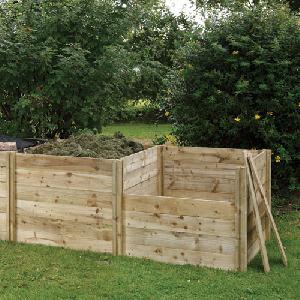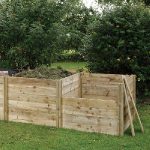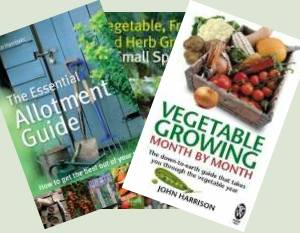Compost is the engine that keeps our gardens and allotments productive. To make compost, a compost bin is ideal. You can often buy a compost bin cheaply from your local council but you can also build your own compost bin for next to nothing – except a little bit of your time.
 Compost can act as a great fertilizer, enriching the soil with organic materials rather than making use of chemicals that can do more harm than good if used badly. Composting is a great way to save money as well. Using compost requires that you completely mix it into the soil, reducing compaction and providing oxygenation to the soil. Compost can help plants stay healthier, and that contributes to their ability to repel diseases and survive insect attacks. A healthy landscape can be achieved with a little help from composting.
Compost can act as a great fertilizer, enriching the soil with organic materials rather than making use of chemicals that can do more harm than good if used badly. Composting is a great way to save money as well. Using compost requires that you completely mix it into the soil, reducing compaction and providing oxygenation to the soil. Compost can help plants stay healthier, and that contributes to their ability to repel diseases and survive insect attacks. A healthy landscape can be achieved with a little help from composting.
It is critical to note that composting does require a little extra work. The mound needs to be turned, and you need to make certain that you have adequate break down of the items in your compost pile.
You need to be selective in what you put in your compost: it ought only be items that will break down naturally. Plant matter (including pulled weeds) and various foods are excellent in compost and will add to the health of your soil, and so to your landscape over all. There is no reason, though, that your compost pile needs to be a true pile. A bin can help you better hold your compost and preserve it from being spread across your compound in a smelly mess by animals or a really ferocious downpour.
The first thing you need to do before you set up a compost bin is decide what your needs are. Numerous people in reality use a three-bin combination. The bins may be connected, or they may be individually lined up.
Some people use the bins for distinct types of compost (regular compost, slow compost like woody plants, and leaves collected in the fall). Others like to have a three-bin system for the turning purposes. Move the compost from one bin into the next, allowing it to turn. Then you can start a pile in the newly vacated bin. By the time the compost makes it into the third bin, it is ready for use. Others find that a single bin is adequate for their needs, and just go out to stir it throughout now and then.
Next you need to decide what materials you will use to construct your bin. It is vital to note that some exposure to the elements is essential for more productive and quicker composting. Chicken wire is not especially good for compost bins as it can extend out of shape extremely readily and does not wear well. Materials like 16-guage plastic-coated wire mesh and hardware cloth are better choices, as is hog wire. Wood makes an interesting choice, but it is critical to note that it will eventually compost itself and will need to be replaced.
One of the easiest and cheapest ways to build a compost bin is to build it from wooden pallets. Most warehouses, grocery, and hardware stores are more than happy to give these away for free, or for very little, as it saves them the trouble of having to discard them.
You can use plastic ties to hold four of them together in a box shape. Joining another bin to make a system is easy: just attach three more pallets using one side of the already made bin to complete another box. Be warned: after about two years you will need a new bin, as this bin will be composting itself.
About the Author
Paul Duxbury offers more gardening and landscaping advice at http://landscaping-ideas.blogspot.com









